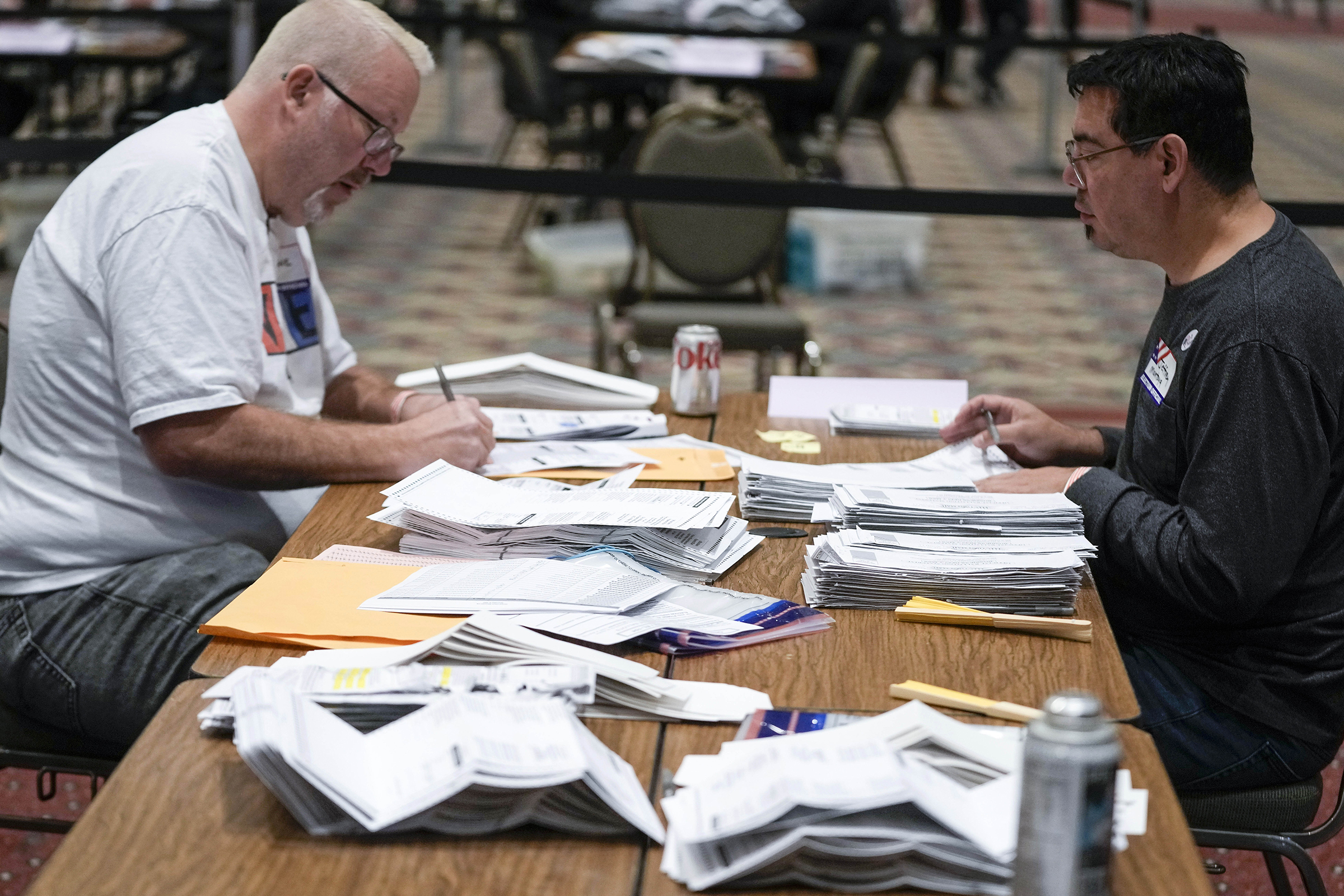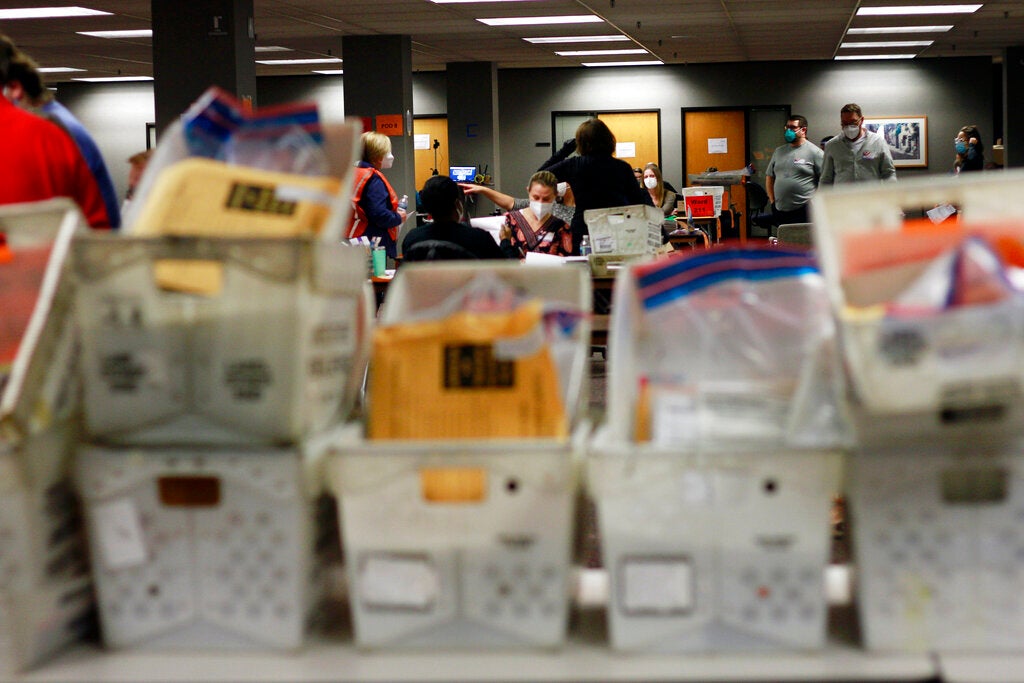A Dane County judge has ordered the Wisconsin Elections Commission to create new rules that allow local clerks to accept absentee ballots with missing witness address information.
The move could lead to more votes being counted in this year’s elections compared to in 2022. An attorney for the Republican-controlled state Legislature plans to appeal the ruling.
Dane County Circuit Court Judge Ryan Nilsestuen issued the ruling as part of a permanent injunction Tuesday. The order requires the commission to rescind guidance it sent to clerks in September stating the agency could no longer advise clerks on whether or not to accept absentee ballots with incomplete address information written on ballot envelopes by a voter’s witness.
Stay informed on the latest news
Sign up for WPR’s email newsletter.
In it’s place, Nilsestuen’s order requires the commission to notify clerks that ballots cannot be rejected if witness addresses are missing things like a ZIP code or municipality. It also states that witness addresses marked “same as voter” or “ditto” must be accepted if that person lives at the same residence as the voter.
“The right to vote is one of our most important, if not the most important, right,” Nilsestuen said. “And this furthers that.”
The injunction wasn’t unexpected. On Jan. 3, Nislestuen, a former chief legal counsel for Democratic Gov. Tony Evers, issued preliminary rulings on the witness address issue in cases brought by the League of Women Voters and the national youth organizing group Rise, Inc. At that time, he said rejecting absentee ballots due to incomplete witness addresses violates the federal Civil Rights act of 1964 and that the definition of an address should mean “a place where the witness can be communicated with.”
Attorney Kevin LeRoy, who is representing the Legislature, said he will file a motion to stay the ruling pending an appeal. Oral arguments on the motion are scheduled for Friday.
Nilsestuen’s ruling conflicts with a September decision from Waukesha County Circuit Court Judge Michael Aprahamian, who said that clerks cannot fill in missing information regardless of whether they can confirm where the witness lives.
With two circuit court decisions now seemingly at odds, the issue could ultimately be decided by the Wisconsin Supreme Court’s liberal majority.
Absentee ballot witness addresses have been challenged repeatedly in court
Multiple lawsuits regarding absentee ballot witness addresses have been filed since the 2020 election, when former President Donald Trump attempted to overturn his loss to President Joe Biden in Wisconsin.
Many stem from a decision by the Wisconsin Elections Commission in 2016, when the WEC unanimously approved guidance on witness addresses that was then sent to election clerks. It specified those addresses should “contain at a minimum, a street number, street name and municipality for the certificate to be considered sufficient.”
As part of its 2020 lawsuit in Wisconsin, the Trump campaign asked the state Supreme Court to reject absentee ballots on a variety of grounds, including that the WEC policy was unlawful.
In a 4-3 opinion issued Dec. 14, 2020, Justice Brian Hagedorn sided with liberal justices in rejecting the Trump suit because it was filed too late. But he also noted a lack of clarity in state law on how a witness address is defined.
That commission guidance was rescinded after the September ruling from Waukesha County, and clerks have not received new orders from the agency.
Wisconsin Public Radio, © Copyright 2025, Board of Regents of the University of Wisconsin System and Wisconsin Educational Communications Board.



